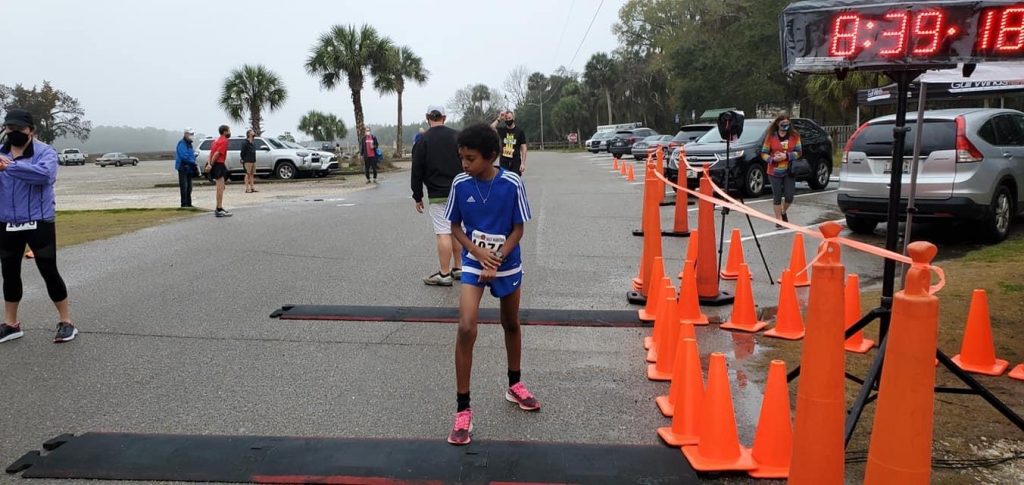Spots in the 2021 Flash 12K-6K last Saturday were at a premium and race director, Keith Rowe, was determined to fill every one of the 100 slots available with a runner. “No shows” are a mainstay of races so it is normally safe to assume that at least 10% of the runners who signed up for the race are going to decide on race day morning that sleep is more important than racing, especially if it is raining. But we are still very much in the age of COVID-19 and local races are few and limited in numbers. This year’s Flash12K-6K closed out quickly (February 7) with little need for any promotion. At that point, there were two options for runners – get on a waiting list or sign up for the virtual race. Or you could do both. Runners who signed up for the virtual race and the wait list got priority.
I was making my way to St. Marks early Saturday morning and I knew the storm blowing through the Big Bend would solve any capacity issues. It was early, as my duty was to help park cars, but the rain was pounding so hard it made seeing the dark road difficult. Volunteers do not have the option of staying home. The good news about the storm is that it made certain everyone willing to drive to the race would have a spot to race. And luckily the rain stopped well before the race got underway. The effort to fill all 100 places fell a little bit short as 48 runners finished the 12K and 38 finished the 6K.
Once again, the race start was on a wave basis but this time runners were assigned to a wave based on when they registered rather than their estimated finishing time. There were five runners in each heat and 20 heats with 30 seconds between each heat. There were health checks, including temperature checks, signs reminding runners to mask up (when not racing) and maintain social distancing, and questionnaire screening.
In the actual racing news, Jillian Heddaeus took the top spot in the women’s 12K race finishing in 54:50. She earned a lot of good karma for her efforts as co-race director of the GWTC 30K-15K race in January. Herb Wills reported that this was Jillian’s first overall win in this race; she has placed in the top seven finishers four times in the last six years. Charlie Johnson was happy to return to racing and he showed it by winning the 12K in a time of 43:40. It was close though as Leonardo Canete, who started several waves behind Charlie, was only nine seconds behind. Interestingly, because of the wave start, Charlie was all alone when he crossed the finish line had no idea Leonardo was so close. Upon finding out he stated, “I am glad I did not stop at the last water station.”
The “youth movement” was on full display in the 6K. Johnathon Kiros, who runs for Deerlake Middle School, became the third member of the Kiros family to win the 6K race as he ran a time of 23:45 (6:22 pace). Sister Leah and dad Geb have also won the 6K race. Jonathon is 12 years old. On the women’s side, Madi Sims (13 years old) sent notice out that she is putting her hamstring injury behind her as she blasted her way to a win in the women’s 6K with a time of 28:57.
There are two other finishes that should be pointed out. On the “old” side of the discussion, Ron Christian ran the 6K in a time of 30:45, an 8:15 pace. What is so memorable about that? The response is: Ron is still setting an example for us all at the age of 75. On the other side of the divide, hiding in 9th place in the 12K, Walker Elrod ran a 53:10, a 7:08 pace. He is 12 years old.
The race began at the San Marcos De Apalache Historic State Park at the confluence of the St. Marks and Wakulla Rivers. The course meanders through the streets of St. Marks before jumping onto the Tallahassee-St. Marks Historic Railroad Trail. At the halfway point, the runners turn around and return to the start. The conditions aside, the race was well done. Because of COVID-19 there was no post-race party and minimal hanging around.
There were a lot of happy faces and many comments thanking Keith and crew for making it real and providing a sense of sanity. Small steps of progress in the battle with COVID.

